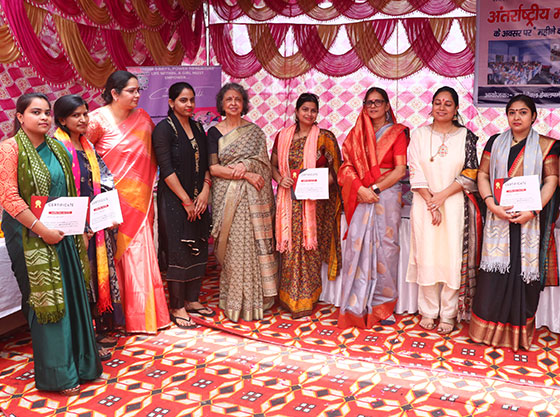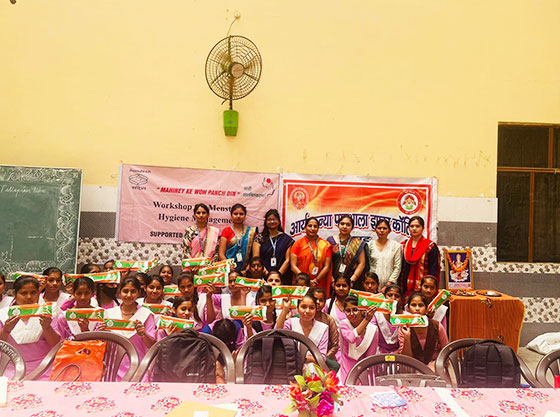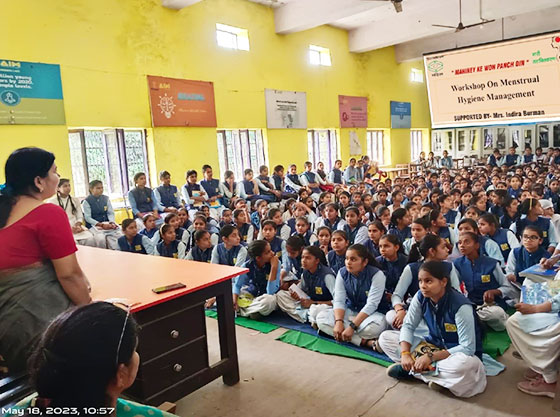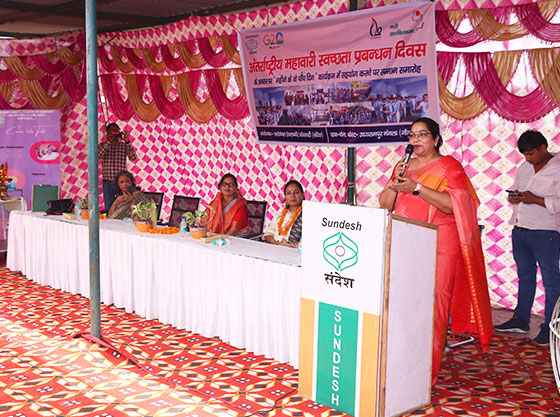
Initiatives Under
Mahiney ke wo Paanch Din
Why a programme on Menstrual Hygiene?
Good menstrual hygiene is essential for the health and dignity of girls and women. Discussions on menstrual hygiene are important for adolescent girls to clarify existing myths and misconceptions around menstruation. Improving menstrual hygiene is important from the point of view of personal comfort and increased mobility. It also reduces the likelihood of infections resulting from poor hygienic practices during menstruation. Providing girls with the knowledge and skills on maintaining menstrual hygiene improves school attendance among girls who may not attend school on those days or even drop out of school altogether.


